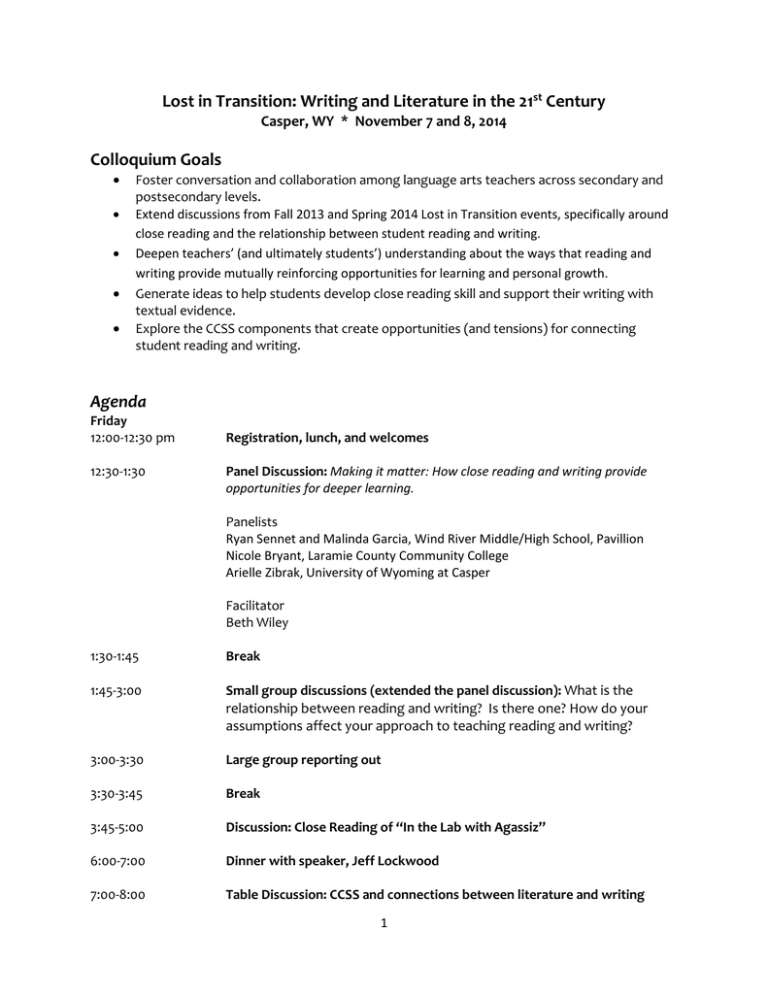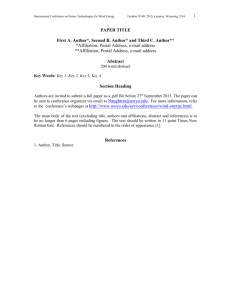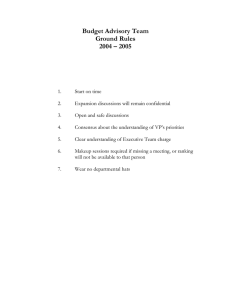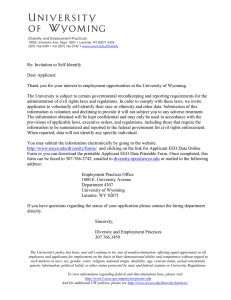Lost in Transition: Writing and Literature in the 21 Century Colloquium Goals
advertisement

Lost in Transition: Writing and Literature in the 21st Century Casper, WY * November 7 and 8, 2014 Colloquium Goals Foster conversation and collaboration among language arts teachers across secondary and postsecondary levels. Extend discussions from Fall 2013 and Spring 2014 Lost in Transition events, specifically around close reading and the relationship between student reading and writing. Deepen teachers’ (and ultimately students’) understanding about the ways that reading and writing provide mutually reinforcing opportunities for learning and personal growth. Generate ideas to help students develop close reading skill and support their writing with textual evidence. Explore the CCSS components that create opportunities (and tensions) for connecting student reading and writing. Agenda Friday 12:00-12:30 pm 12:30-1:30 Registration, lunch, and welcomes Panel Discussion: Making it matter: How close reading and writing provide opportunities for deeper learning. Panelists Ryan Sennet and Malinda Garcia, Wind River Middle/High School, Pavillion Nicole Bryant, Laramie County Community College Arielle Zibrak, University of Wyoming at Casper Facilitator Beth Wiley 1:30-1:45 Break 1:45-3:00 Small group discussions (extended the panel discussion): What is the relationship between reading and writing? Is there one? How do your assumptions affect your approach to teaching reading and writing? 3:00-3:30 Large group reporting out 3:30-3:45 Break 3:45-5:00 Discussion: Close Reading of “In the Lab with Agassiz” 6:00-7:00 Dinner with speaker, Jeff Lockwood 7:00-8:00 Table Discussion: CCSS and connections between literature and writing 1 Saturday 8:00-8:15 am Light breakfast treats and registration 8:15-8:30 Overview of the day’s agenda, and introduction to table group discussion/respondents 8:30-9:45 Table group discussions: Writing assignments NOTE: Each participant should bring 8 copies of a writing assignment that requires students to read at least 2 texts (books, movies, charts/graphs, images, news articles, student exemplars, essays, lyrics/poetry, blogs, etc.). We strongly encourage you also to bring a sample student response to the assignment (with student name removed). The sample can be either successful or poor, or one of each if you wish. 9:45-10:00 Break 10:00-10:30 Large group reporting out: formal responders speak out! 10:30-11:30 Table self-guided discussions. Possible topics for discussions: On-screen/multimodal/non-traditional reading Cross-subject collaborations Reading as information literacy Connecting “words” and “worlds Class-generated texts as reading 11:30-11:45 Large group reporting out: Top takeaway from each break-out session 11:45-12:00 Wrap-up, evaluations, announcements, door prizes Event Sponsors Wyoming School-University Partnership - www.uwyo.edu/wsup UW LeaRN - http://www.uwyo.edu/learn/index.html Undergraduate Programs, College of Education, University of Wyoming - www.uwyo.edu/ted 2


